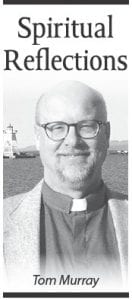God brought him outside
and said, “Look toward
heaven and count the stars,
if you are able to count
them.” Then God said to him,
“So shall your descendants
be.”
Genesis 15: 5
One of my favorite snippets of scripture is when God comes to Abraham and invites him to imagine that his descendants will one day be like the constellations that fill the night sky. This is such an audacious promise. It’s crazy, really, when you think about it. It’s a promise made to a couple who have long since given up the hope that they will bear children of their own.
God doesn’t just promise that a child will be born to them. God assures them that they will bear a people. We often read this story as the genesis of the three Abrahamic faiths, but beneath all that is the deeply personal story of a family following God’s invitation to leave everything behind and follow.
Abraham and Sarah are elderly. It’s too late to bear children. This undeniable fact has become the narrative of their lives. All of us have been in that place at some time in our lives. We’ve all been overcome by feelings of hopelessness, despair, confusion, or grief. We’ve all gazed up at the stars, pondering if it’s too late to start over.
That’s where Abraham and Sarah are, until God comes to them, and in the midst of their doubts, their fears, and perhaps even their bitterness, makes a stunning promise to them. Tania Runyan speaks to what happens next in her poem, “Sarah Considers the Stars.”
After Abraham fell asleep she pulled her cloak around her shoulders and walked out to stare at the night. Stars collected in the crevices of mountains. They spilled into the oak groves and clung to the branches. And when she spread her hands to the sky they rested in the sags of flesh between her fingers.
The world is dripping with stars…she thought…and still not one belongs to me.
She considered hating them. She considered wishing a heavenly storm to drown them. But she only murmured, “I am through” and walked off, holding a sudden sharpness in her side as if a star had dislodged there, and turning and scraping and shining its path, settled into the bare sky of her body.
The connection between this beautiful story and our own narrative is found in our struggle to imagine the world through God’s eyes. Sarah and Abraham could only see a world in which they were too old to conceive a child, yet God saw a world filled with their descendants so numerous that they would one day be like stars in the firmament. We often see ourselves as broken and unredeemable, while God sees us as worthy of unconditional love.
Perhaps we should pause from time to time and ask: just what does our neighborhood look like when we imagine it as God imagines it? What does it look like when the kingdom of God is active in our homes, our politics, and our churches? Imagining our community through God’s eyes, we see men and women struggling with addiction given hope, victims of violence comforted, and hungry children fed. We see people of faith willing to risk their standing and reputation in order to protect the rights of the most vulnerable.
Imagining this world through God’s eyes, we see exploited children empowered to move beyond their fear, runaway teens given shelter and protection, LGBT youth given the hope of acceptance, immigrants and refugees welcomed, the elderly honored, public servants respected, the poor treated with dignity, our veterans cared for, and our enemies loved.
The gospel will always offend our longing to keep things as they are. When we envision the future through the lens of God’s promise, we discover a world that proclaims justice and righteousness in a way that compels us to renounce the status quo. That which Jesus invites us to share in directly challenges the religious, economic, political, and social norms that we cling to.
God’s audacious promise is our invitation to not wait until next week to forgive our neighbor. It’s our summons to feed the hungry, to house the homeless, to confront those who abuse, to reach out to the marginalized, and to live lives of unconditional love and forgiveness.
Each month a member of the Cook County Ministerium will offer Spiritual Reflections. This month’s contributor is Tom Murray of the Lutsen Lutheran Church and Baptism River Community Church of Finland.



Loading Comments